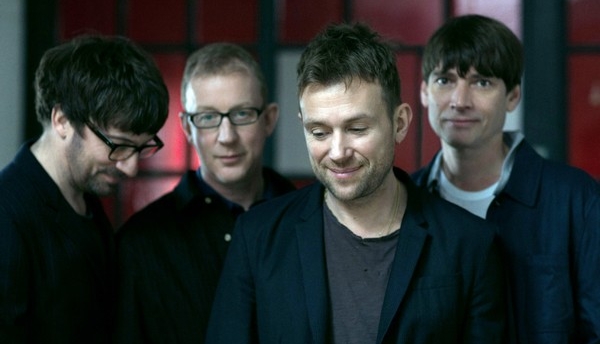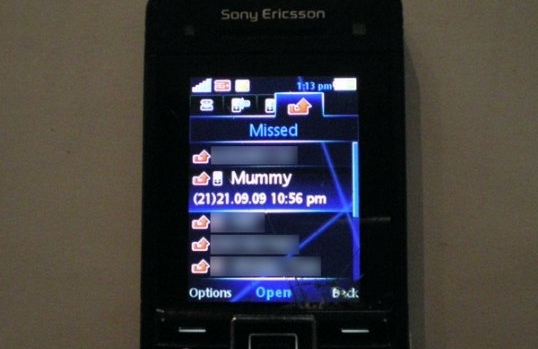Nearly two years later, the material from those sessions had been fashioned into The Magic Whip; this lineup’s first full record since the 1999 masterpiece, 13, and now a universally lauded return to form.
Blur have a history of building bridges over troubled waters, from the upheaval in Albarn’s personal life that birthed 13 to the departure of Coxon before 2003’s nonetheless excellent Think Tank. During those 24 months between the genesis of The Magic Whip and its release, Blur were booked for a headlining slot on the 2014 Big Day Out tour in Australia and New Zealand. Eight weeks out from the festival, they cancelled their visit.
“It certainly wasn’t a happy time for us,” says Rowntree, the band’s drummer and a high-profile member of the UK Labour Party. “We were really looking forward to coming – in fact, I was desperately excited at the prospect of coming to Australia – but I just think we picked a rather rickety old ship to sail on. We probably should have picked something a bit more solid.”
At the time, Big Day Out pointed the finger of blame at Blur for being inflexible over playing times and staging. Now that the festival’s future is perilous at best, Rowntree maintains the band hadn’t a choice. “It’s difficult to know what to do in those situations,” he says. “We were a long way away from it, and couldn’t see at the outset that things weren’t quite as they were being represented to us, so when it became clear that was what was going on, it meant that we had to cancel it all rather late in the day.”
This time around, Blur have chosen Splendour In The Grass and a couple of sideshows to make their return Down Under. Their first shows here in 18 years will also be their biggest, belying the suggestion the band’s heyday came and went with the ’90s Britpop era.
“It’s as if we’d never taken a break; it’s as if we’d carried on making music throughout those years,” says Rowntree. “We’ve kind of grown and grown, even in our absence – maybe even because of our absence. Maybe that gave people a chance to catch up and listen to all the old albums. I have no idea.”
When he looks back now on the so-called Britpop era – the days of Parklife and Country House, when Blur battled Oasis for chart supremacy and Tony Blair threw a ‘Cool Britannia’ party at Downing Street to cash in on British pop music’s newly rediscovered cultural capital – Rowntree is slightly baffled.
“We weren’t invited to that party – or I think we may have been invited but we didn’t go. We weren’t on the list of bands that epitomised all of that at the time. There’s this dreadful word ‘Britpop’ that was coined, and people look back and make this assumption that we were spearheading that somehow, but actually that was very little to do with us.”
Rowntree pauses to consider the prevailing idea that Blur were icons of this cultural movement, and chuckles. “We may have kicked it off, but by the time it all happened we were thinking about other things. The new album doesn’t sing about Englishness and Britishness and ‘la la la’ and characters running around parks – we haven’t done that for a long, long time.”
The Magic Whip instead distils the atmosphere of Hong Kong around the time of those initial sessions, and from when Albarn returned there in late 2014 to finish his lyrics. In between, the project was headed by Coxon and Blur’s producer from the old days, Stephen Street, who together worked on editing the recordings into a cohesive set of ideas.
“After that initial editing process, some excited emails with a few of those edits circulated to all of us, and we were all fired up with enthusiasm,” Rowntree explains. “[Then] more refined edits were played to Damon to see if he was up for making an album out of them. The fact that Alex and I were up for making an album was a given, because we were jumping up and down going, ‘Let’s make an album.’ Damon rather wearily said yes, because it was clear from the quality of what they’d done so far that this was going to have to be an album, and he was going to have to juggle quite a few things this year.
“It’s certainly a very different way of making a record, not something we’ve ever done before, so you never quite know how things are going to go… It may have been the case that we went in, had fun making some new music, and actually when we listened to it back it wasn’t any good, or wasn’t good enough, or wasn’t inspiring enough to carry us forward.
“A lot of things came together, a lot of happy coincidences and accidents happened, that meant this album could happen.”
BY CHRIS MARTIN







